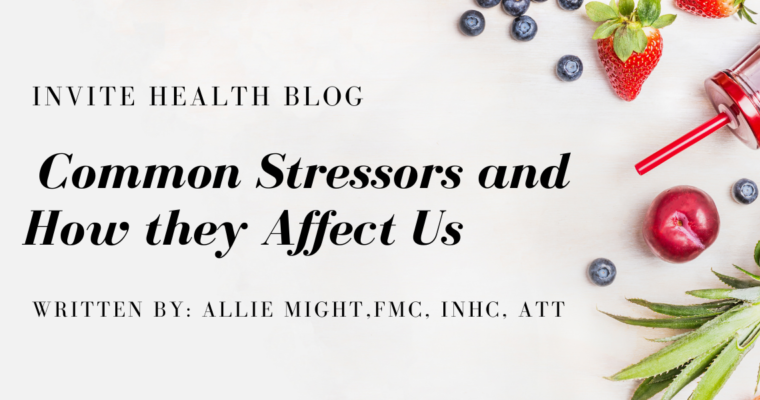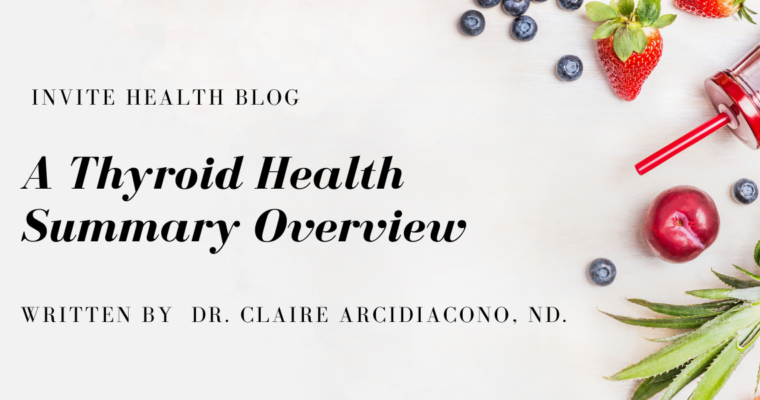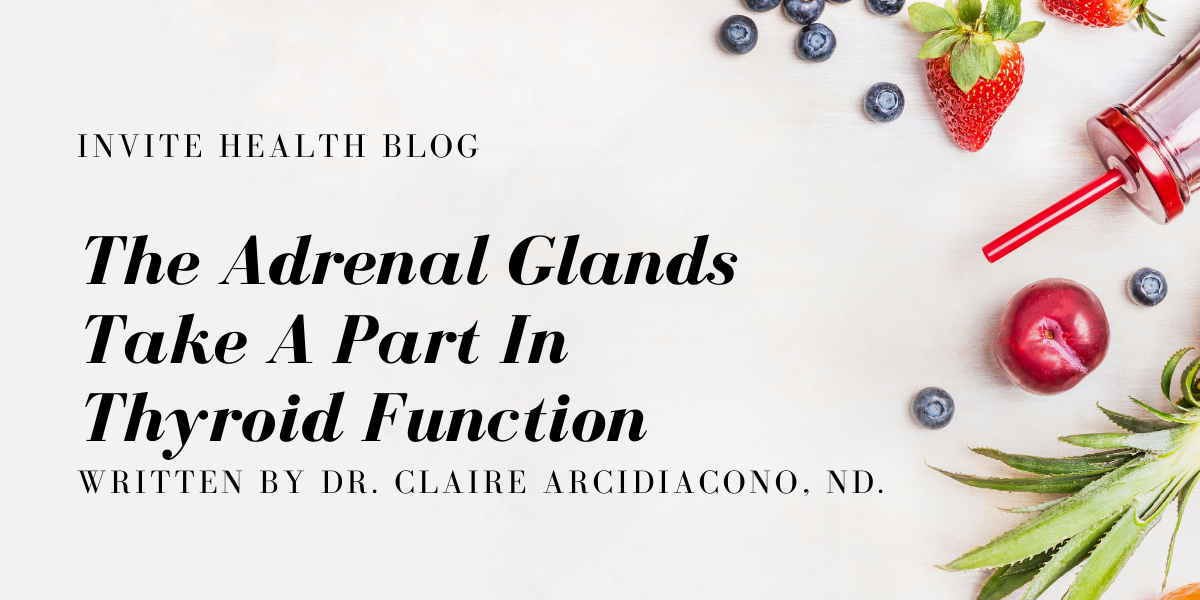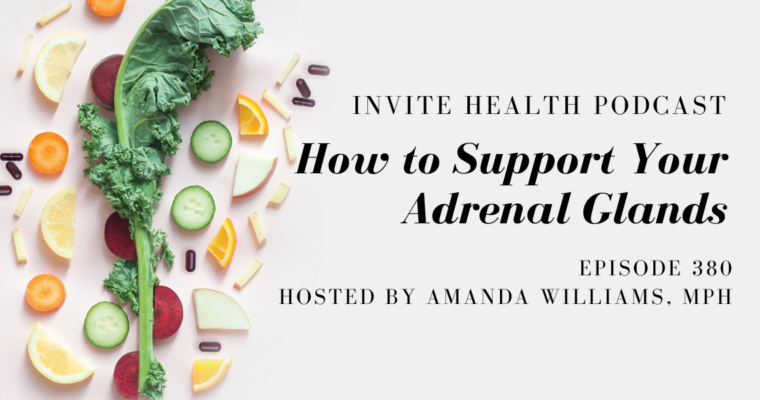Adrenal Glands
Written by Dr. Claire Arcidiacono, ND
For further questions or concerns email me at carcidiacono@invitehealth.com
The thyroid works with the adrenal glands lets look deeper into what the adrenal glands are and how they work.†
What Are The Adrenal Glands?
In a nutshell they are small glands on top of the kidneys that produce hormones. They look rather like little hats that live on top of the kidneys. These glands produce 3 types of hormones. They produce mineralocorticoids for example aldosterone which can control blood pressure, glucocorticoids predominately cortisol which is the hormone in charge of our flight or fight response, and adrenal androgen such as DHEA and testosterone. What does all this mean? Well to sum it up the adrenal glands are in charge of our blood pressure, sodium balance in the body, water balance in the body as well as the body’s response to stress or illness. Now stress can mean anything from work stress to a long term illness. If any of your bodies systems are not working up to par the body sees that as stress and the adrenals will react by making cortisol. The adrenals are also in charge of regulating metabolism for example weight as well as fat metabolism and glucose regulation. The adrenals are also very important when it comes to sleep regulation. In fact, when the adrenals are signaled to produce more cortisol (which given it is the main hormone associated with stress it is the main hormone I will talk about) the symptoms include fatigue with a difficulty staying asleep. This can lead to feelings of anxiety as well as weight gain and higher than normal blood pressure.† (1)
Thyroid Health Relationship to Adrenal Glands
Well the thyroid as we know it is connected to almost every system in the body. One of the problems of having too much cortisol produced by the adrenals is that they affect the thyroid itself. Stress hormones for example cortisol, cause the conversion of T3 from T4 to be reduced hence increasing the likelihood of hypothyroid symptoms! (2) This may be one reason when we see clients with what is called adrenal fatigue we often are also working with them to address hypothyroid symptoms. Interestingly, in cases of long term thyroid dysfunction there is also adrenal dysfunction. Now you might say “I know I just read that” but what I mean is that the adrenals can affect the thyroid but the thyroid can affect the adrenals long term. How is that possible? Because the adrenals will often try and compensate for the reduced thyroid hormones. To produce energy they will produce cortisol. However, in the long run this can cause adrenal fatigue. What exactly is adrenal fatigue? In the normal process your body will produce cortisol in the morning to wake you up, a small amount in the afternoon to keep you going and none at night so you can sleep. When you are under stress the adrenals are constantly forced to produce cortisol. This leads to the adrenals becoming unregulated or fatigued. One such issue is that they produce cortisol at night rather than in the morning. They also tend to produce either too much cortisol or not enough. Symptoms of adrenal fatigue can include trouble with sleeping/fatigue, headaches, and digestive issues, changes in weight, and anxiety, brain fog, depression and even joint pain. (3) Please see the included picture for a complete system by system breakdown of the symptoms of adrenal fatigue.† (4)
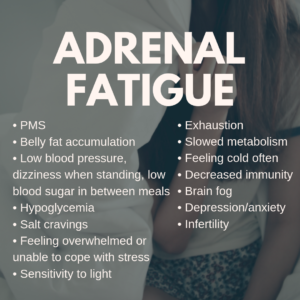
Beneficial Supplements For Adrenal Fatigue
Since so many people with hypothyroid also suffer from adrenal fatigue I really wanted to include a brief discussion of it here since it is important to support the adrenals when working with the thyroid.†
The following supplements have been found to be helpful in working with adrenal fatigue:†
Adrenal glandular are very important in working with adrenal fatigue.†
See InviteⓇ Health Supplement Dr. Pressman Adrenoserine†
Ashwagandha root has been found in studies to not only regulate the thyroid but it also helps to act as an adaptogen to regulate cortisol. In fact studies show lower cortisol levels using this herb.†(5)
See InviteⓇ Health Supplements Dr. Pressman Adrenoserine and Thyroid HxⓇ †
Rhodiola has been found to help moderate the cortisol levels when they are high due to stress. This can help with the stress response.† (6)
See InviteⓇ Health Supplements Rhodiola and our Performance multivitamin†
Licorice root helps to maintain cortisol in the morning so that energy is available when needed. One of the things that often happens in adrenal fatigue is that while there is too much cortisol at night there is too little in the morning. Licorice helps to normalize this.† (7)
See InviteⓇ Health Supplements Dr. Pressman Adrenoserine, DGL Licorice, and MinACID Hx® †
B Complex is important for energy and are usually depleted by stress which is associated with adrenal fatigue.†
See InviteⓇ Health Supplements Methyl-B for an activated complex of B vitamins that go straight to work †
Methylated B vitamins are very good for people with adrenal fatigue since they don’t have to be activated.† (8)
See InviteⓇ Health Supplements B-Complex 50, B-Complex 100 and any of our Men’s Multivitamin, Women’s Multivitamin, Core Multivitamin, and Performance Multivitamin †
Phosphatidylserine is one of the best things to help with cortisol that is waking you up in the middle of the night. After a few weeks most people say their sleep starts to improve. Studies show Phosphatidylserine normalizes cortisol especially when taken at night.† (9)
See InviteⓇ Health Supplements Phosphatidylserine and Cerebral care †
Sources
⦁ https://www.yourhormones.info/glands/adrenal-glands/
⦁ https://www.amymyersmd.com/article/adrenal-thyroid-connection/
⦁ https://www.webmd.com/a-to-z-guides/what-is-cortisol
⦁ https://drmteitelbaum.com/signs-of-adrenal-fatigue/
⦁ https://pubmed.ncbi.nlm.nih.gov/23439798/
⦁ https://www.herbalgram.org/resources/herbalgram/issues/82/table-of-contents/article3409/
⦁ Al-Dujaili EA, Kenyon CJ, Nicol MR, Mason JI. Licorice and glycyrrhetinic acid increase DHEA and deoxycorticosterone levels in vivo and in vitro by inhibiting adrenal SULT2A1 activity. Mol Cell Endocrinol. 2010 Dec 22.
https://www.ncbi.nlm.nih.gov ⦁ HYPERLINK “https://www.ncbi.nlm.nih.gov/pmc/articles/PMC6770181/” ⦁ HYPERLINK “https://www.ncbi.nlm.nih.gov/pmc/articles/PMC6770181/”⦁ /pmc/articles/PMC6770181/
⦁ https://www.ncbi.nlm.nih.gov/pmc/articles/PMC4942871/


